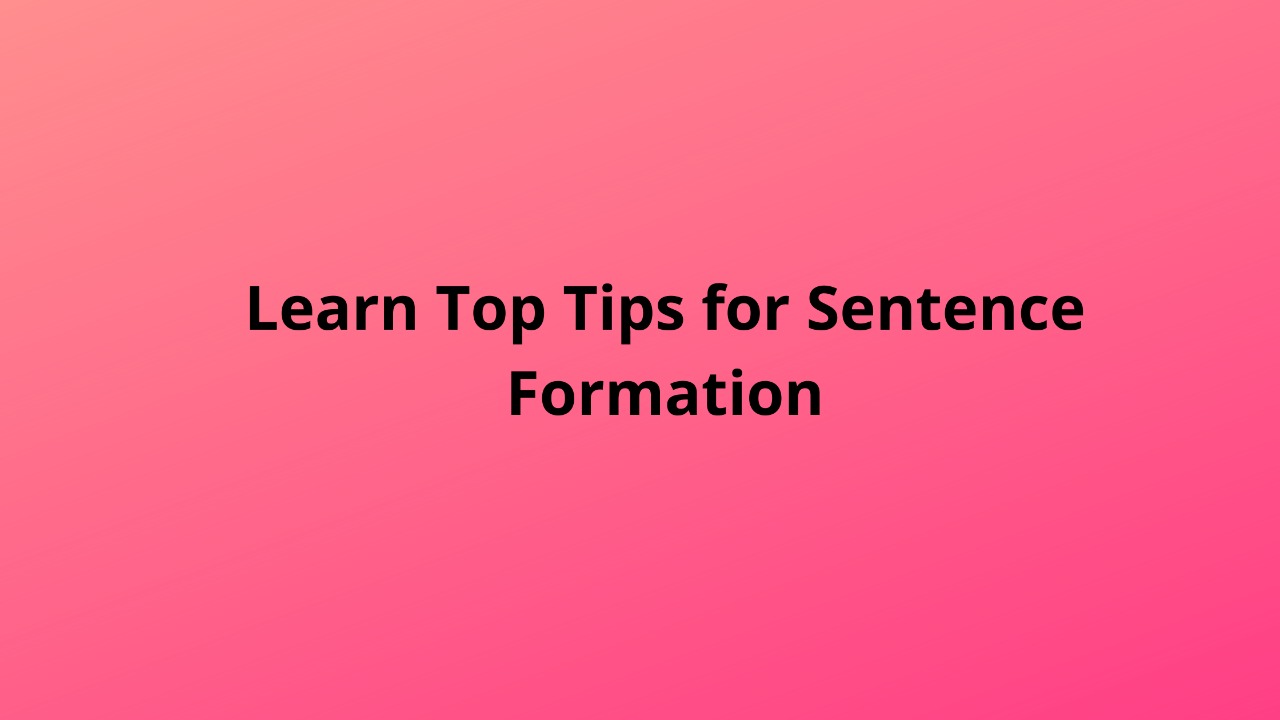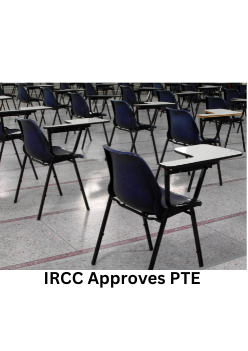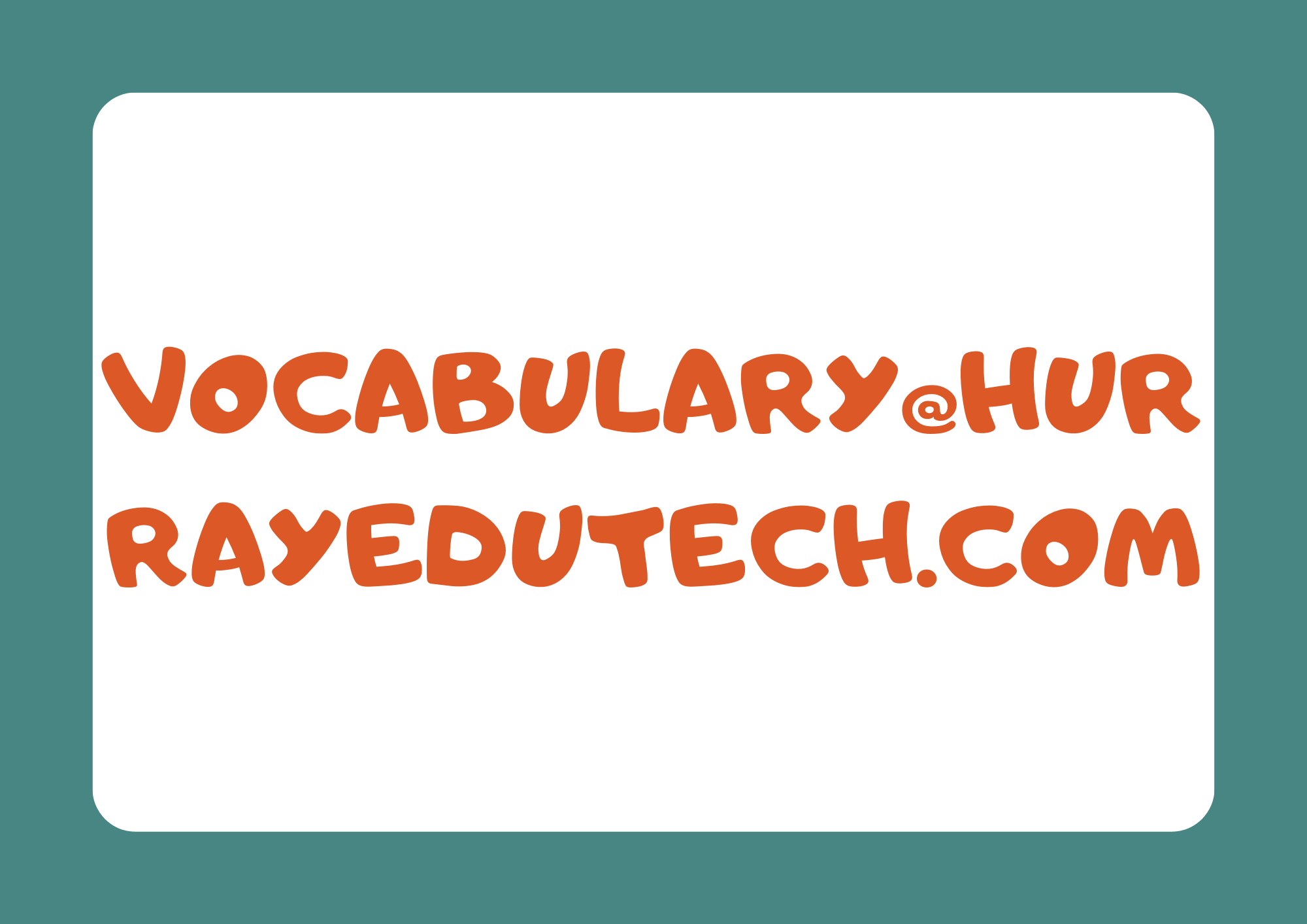Building Blocks of English: Sentence Formation
Do you want to improve your English in order to open new doors in your career? Or perhaps to go abroad for work or education?
Whatever your need – you have come to the right place! With 10 years of experience with English language training, hundreds of our students now thriving around the world, and a well-developed strategy to help you perfect your English – Hurray will be your perfect partner.
We’ve launched a series of blog posts, wherein we take up one component of language at a time, and unveil its various nitty-gritties. Today, we’re talking about sentence formation! Read on to learn more.
P.S. don’t forget to check out our other posts – on Adjectives, Articles, Prepositions and Collocations.
Sentence Formation: The Basics
What is a sentence?
A sentence is a series of words, that follows a particular structure – it is the basic unit of written or spoken language, that is used to convey meaning in context.
Parts of a sentence
At the very basic level, a sentence will consist of at least one noun and at least one verb, and it must end with a punctuation mark that signals the end of the sentence – i.e. a full stop (.), or exclamation mark (!).
In addition, a sentence will also make use of several of other words that contribute further meaning.
The following table is a quick summary of all the possible parts of a sentence – you can learn more about each in our other blog posts.
|
Part of sentence |
Description |
Examples |
|
Article |
Comes before the noun |
a/an/the |
|
Adjective |
A modifying word, which modifies the noun (comes before the noun) |
beautiful/red
Also includes indicative adjectives like this/that, possessive adjectives like his/her/their etc. |
|
Noun |
A thing/person/place (doing/receiving the action) |
ball/man/Jack/India |
|
Pronoun (as subject) |
Used in place of a noun that is doing the action |
he/she/they/it |
|
Verb |
An action |
to throw/throws/throwing/threw/had thrown |
|
Conjunction |
A joining word – it joins 2 words together |
For/and/but/or/nor/yet/so |
|
Preposition |
Indicates the direction/position |
to/from/above/below |
|
Pronoun (as object) |
Used in place of a noun that is receiving the action/on which it is done |
him/her/them/it |
|
Adverb |
A modifying word, which modifies words other than the noun (usually comes at the end of the sentence) |
well/sadly/happily |
|
Punctuation mark |
Indicates the end of the sentence |
Full stop ‘.’ – for a normal statement Exclamation mark ‘!’ – for a statement that indicates high emotion |
Types of sentences and how to form them
There are 4 kinds of sentences:
-
Simple sentence
-
Complex sentence
-
Compound sentence
-
Complex-compound sentence
-
Simple sentence
A simple sentence consists of a single independent clause.
In an independent clause, there is only one action happening. That action does not depend on anything else, to happen.
A simple sentence consists of two parts – the subject and the predicate. In its simplest form, the subject consists of a noun/pronoun, and the predicate consists of a verb and an object i.e. noun/pronoun.
In addition, other parts of the sentence will fit into the sentence as follows:
|
Subject |
Predicate |
|
|
(Article + adjective +) noun/pronoun |
Verb |
(preposition + article + adjective +) object i.e. noun/pronoun (+adverb) |
|
The man |
bought |
a blue boat. |
|
The old woman |
climbed |
up the rickety stairs, slowly. |
|
I |
did not know |
him well. |
-
Complex sentence
A complex sentence consists of a single independent clause and one or more dependent clauses.
In a dependent clause, there is an action which is “dependent” on another action to happen. Only in combination with the independent clause, will the dependent clause make sense/be complete.
|
Independent clause |
Dependent clause |
|
|
Subject (article + noun) |
Predicate (verb + preposition + article + object) |
(Looks like a predicate) |
|
Jack |
went to the store, |
to buy a book. |
By itself “to buy a book.” does not make sense/is incomplete. It needs to be combined with “Jack went to the store,”.
Points to note:
-
The dependent clause does not have a subject – while the independent clause does have a subject, like “Jack”
-
It can, however, have an object-noun – such as “book”
-
The dependent clause can also come before the independent clause, example:
|
Dependent clause |
Independent clause |
|
To succeed, |
one must work hard! |
-
The first clause (either dependent or independent) is followed by a comma.
-
Compound sentence
A complex sentence consists of a two or more independent clauses, combined with a conjunction. Here the conjunction used will be a ‘coordinating conjunction’.
|
Independent clause 1 |
Coordinating conjunction |
Independent clause 2 |
|
My name is Rohini |
And |
I am 18 years old. |
A compound sentence can also consist of a main clause and subordinate clause. Here, each of the two clauses may be independent – however when joined in to form the compound sentence, the subordinate clause depends on the main clause, for the sentence’s meaning to be complete. Here the conjunction used will be a ‘subordinating conjunction’.
|
Main clause |
Subordinating conjunction |
Subordinate clause |
|
She went for a run, |
although |
We told her not to. |
Using commas:
-
The first clause may or may not be followed by a comma – it depends on whether or not a pause is required, and is often left to the writer’s discretion.
-
However, if there are more than 2 independent clauses, every clause will typically be followed by a comma. Here, the conjunction comes only before the last clause:
|
Independent clause |
Independent clause |
Conjunction |
Independent clause |
|
My name is Rohini, |
I am 18 years old, |
and |
I study at Christ University. |
-
Compound-complex sentence
A compound-complex sentence consists of a two or more independent clauses, combined with a conjunction AND at least one dependent clause.
Points to note:
-
Any or all of the independent clauses may have a dependent clause.
-
The independent clause may have more than one dependent clause.
-
The conjunction comes in front of the last independent clause.
-
The sentence may also have a subordinating conjunction which comes in front of the dependent clause.
Examples:
|
Independent clause |
Conjunction |
Independent clause |
Subordinating conjunction |
Dependent clause |
|
I hate waking up early, |
but |
I can |
if |
I have to. |
|
Dependent clause |
Independent clause |
Conjunction |
Independent clause |
|
A few times a year, |
I take a break from work |
and |
I go on a short vacation. |
Tips for good writing
Being able to form well-constructed sentences, that sound good and make your meaning clear, is possibly the fundamental writing skill that you need to master.
Here are a few tips to help you get started:
-
Do not overdo the complexity
A good piece of writing will consist of a balanced number of simple, complex, compound and complex-compound sentences. Too many simple sentences will make your writing appear amateurish, while too many of the other type of sentences may make your writing too cluttered or unreadable.
-
Watch out for the length
Avoid writing sentences that are too long – 20 to 30 words should be your limit. If you find yourself writing sentences that are too long, examine them and see how you can break them down. The ultimate goal is to ensure that your meaning comes across clearly.
-
Avoid exclamation marks – unless necessary
Too many exclamation marks can spoil a piece of writing. Use them sparingly, and only when you absolutely need to – when making an important or surprising point, when inserting something ironic or sarcastic, or when showing enthusiasm.
Furthermore, ensure that your exclamation marks are spaced out in your writing. For instance, in a paragraph of only 3-4 sentences, there shouldn’t be more than 1 exclamation mark.
-
Always re-read your work!
Even the most seasoned writers make mistakes while forming sentences – they may be too long or complex, or may not make sense. When you re-read your work, you will be able to make changes as required, in order to make your writing readable and sensible.
What next?
Did you find having all the information in one place helpful? Imagine how much you’d stand to gain from an English training course – where you’d have weeks’ worth of access to expert and experienced trainers, full of several such techniques, and plenty of opportunities to put them into practice.
At Hurray, we have some of the best trainers in Bangalore to provide you with assistance. Whether you need training for IELTS or PTE, or Spoken English training, we are at your service. And best of all, we offer our services online. We can help you reach your full potential!
You can reach out to us at info@hurrayedutech.com 8971357938, to learn more!











Post Comments